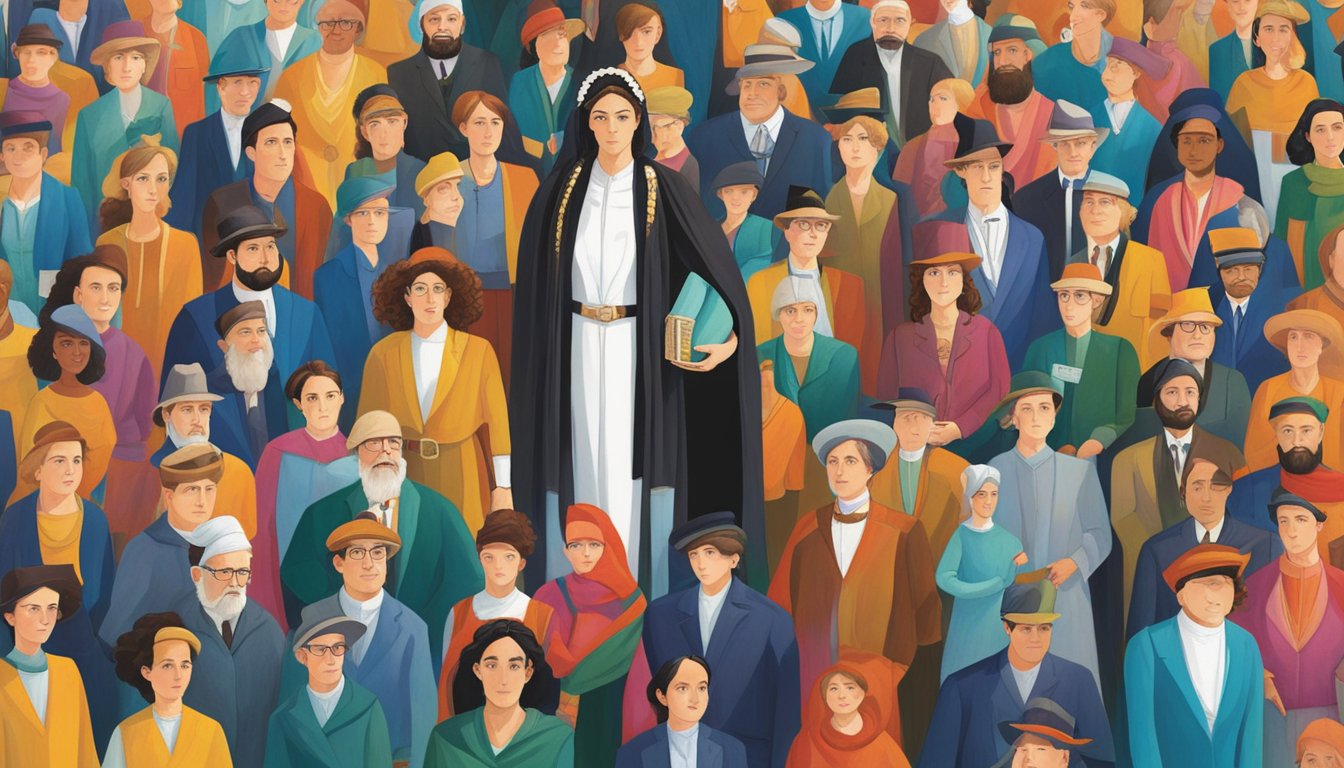Don’t Miss Out On This Unique Astrological Opportunity
Are you tired of spinning your wheels and getting nowhere? Simply put, you’re out of sync: you’re out of alignment with your astral configuration.
But: there’s a kind of map that can help you reclaim your alignment. Think of it as your own personal blueprint to success and happiness: a blueprint that will help you live your most amazing life.
Get started here.
The Stand Against Corruption
Danielle Sassoon has emerged as a pivotal force in the quest for ethical leadership in America—an inspiration not just for Jewish communities but for society at large.
This affirmation contrasts sharply with the sentiments voiced by the late Tina Turner, who famously lamented society’s longing for heroes.
In today’s landscape, where political turmoil seems omnipresent, the need for figures of moral courage has never been more pressing.
Since Donald Trump’s presidency began, our nation has grappled with a disheartening retreat from bravery among those in powerful positions.
Recent weeks further illustrated this troubling trend, as many shied away from speaking out against the administration’s controversial decisions.
The significance of this issue transcends mere political discourse; it strikes a particularly resonant chord within Jewish communities.
Here, the need for strong moral role models is especially acute, particularly for younger generations.
As a seeker of ethical leadership, I find myself longing for a resurgence of individuals willing to confront the norms that govern us.
Danielle Sassoon’s Courage
Traditionally, Jewish leaders like Elie Wiesel have boldly challenged government actions that lacked moral clarity, yet such public demonstrations of bravery seem scarce today.
Enter Danielle Sassoon, a refreshing contrast.
Recently, the U.S. Department of Justice put forth an offer that could easily be construed as quid pro quo to New York City’s Mayor Eric Adams, suggesting he might evade corruption charges if he endorsed their immigration policies.
Back in January, when Sassoon served as acting U.S. attorney for the Southern District of New York, she met with the mayor’s legal team and Justice Department representatives.
They pressured her to dismiss the ongoing case against Adams.
However, rather than succumbing to this pressure, she firmly articulated her rationale for continuing the prosecution, underscoring her commitment to her duties irrespective of outside influences.
Ultimately, Danielle Sassoon chose to resign rather than yield to unethical demands—a decision accompanied by her colleagues in the Public Integrity Section, collectively demonstrating a commitment to principled leadership.
Now, the outcome of Adams’s corruption case rests in the hands of a federal judge in Manhattan.
Sassoon is more than just a symbol of integrity; she personifies the characteristics of a modern Jewish heroine.
Raised in an Orthodox Jewish environment and educated at esteemed institutions like Ramaz School, Harvard, and Yale Law School, she has earned her place within the legal realm.
Despite her conservative leanings, which aligned her with the ideologies of the Trump administration—having clerked for Justice Antonin Scalia and been involved with the Federalist Society—many may have anticipated her silence in light of government directives.
Instead, she carved her own path.
Her defiance of the Justice Department’s instructions not only drew upon foundational American legal tenets but also resonated deeply with her Jewish roots.
She committed to pursuing justice fairly, regardless of personal relationships or social standing—an essential principle in her worldview.
This steadfast dedication underscored her belief that the rule of law must transcend political pressure and personal consequence.
To her, the pursuit of justice was not merely a professional duty but a moral obligation, reflecting the true nature of heaven—where righteousness prevails over influence or power.
In every decision, she sought to uphold these ideals, even when doing so came at great personal cost.
A Legacy of Courage
Her actions evoke a powerful message from this week’s Torah portion, which warns against accepting bribes, highlighting their role in clouding judgment and distorting justice.
This reflects the enduring Jewish commitment to fairness, as echoed in the Deuteronomic mandate to seek justice.
In many ways, Sassoon resembles the courageous figures of the past, such as Shifra and Puah from the Book of Exodus, who bravely defied Pharaoh’s orders to protect Hebrew infants.
These early pioneers of civil disobedience remain relevant as today’s democracy faces its own struggles.
Interestingly, Sassoon is part of a storied lineage closely linked to one of the most distinguished Jewish families in history.
The roots of the Sassoon family trace back to cities as diverse as Baghdad and Aleppo, spreading their influence globally.
Among their notable contributions is the Codex Sassoon, recognized as the oldest known Hebrew Bible manuscript.
One can only imagine her ancestors witnessing the moral strength of Queen Esther and Mordecai, who stood resiliently against Haman’s tyranny in ancient Persia.
Reflecting on my own education, I recall a significant moment in fourth grade, when a teacher shared an image of Rabbi Arthur J. Lelyveld, a man who faced violence while championing civil rights in the 1960s.
His resolve has remained a hallmark of courage within our community.
In contrast, contemporary Jewish courage is manifested not through violence, but through principled stands like those of Sassoon.
It is my hope that Jewish educators today introduce students to figures like her, instilling the importance of moral conviction in our society.
As we navigate these tumultuous times, individuals like Danielle Sassoon remind us of the critical need for integrity and accountability in leadership.
Source: Religionnews



